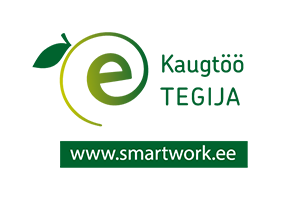 All news
All news

This article brings out several of the great ideas from the original scientific studies and papers introduced during the conference.
The first paper, “A Deployment of Artificial Intelligence and its Ethical Implications” by Zdenka Konecna, Kari Joensen and Jan Budik, discussed some of the most important ethical considerations to be considered while using AI tools and supplying it with our information. The speaker presented a framework for building an ethical AI and brought examples of the pillars for this framework. Some of these pillars were data security and privacy, transparency, ethical standards, human rights laws. It is of utmost importance, the speaker noted, that these solutions would be fair and transparent in showing who and how is using the data provided by all of us.
The second paper, “Case Study on Possibilities of Implementation of AI in Service Industry Automating Internal and External Communication” by Henrijs Kaļķis, Svetlana Kocerova and Zenija Roja, researched the possibilities of using AI in written communication and exploring how widely this could be used in the finance sector organisations. A case study was conducted to evaluate the threats and possibilities presented by AI, and the level of collaboration possibilities between the employees and AI. The results showed that, firstly, AI can be widely used both in private and public sectors, especially in service industries. However, its usage requires wise choices and knowledge to balance out the risks and ethical dilemmas. Secondly, the small case study identified areas where AI can be used and currently work is being done with testing and implementing smaller initiatives. Thirdly, there are advantages of scale to working with initiatives centrally and building company-wide capabilities to increase efficiency.
The third paper, “Large Language Models (LLMs) And the Art of Asking Questions” by Timo Nevalainen, focused on how and what kind of questions can be asked from programs like ChatGPT. He stated that there are all kinds of questions and therefore, all kinds of answers. However, sometimes, asking bad questions and receiving bad answers can be enough conversation to come up with a good question and finally reach a good response or result. Therefore, again, we must learn how to properly prompt and ask the right questions.
The fourth paper, “AI-Driven 3D Modelling for Advanced Robotic End Effector Development” by Sven Maričić and Dominik Zganec brought examples of how AI could enhance the production of robotic arms and displayed the step-by-step order of 3D printing the details of the robotic arm. A few goals reached were 10% shorter production time and 15-20% smaller amounts of material used. The team will continue analysing the latest model created and push forward the idea of possibly making similar robotic arms out of plastic bottles.
The fifth paper, “AI in Higher Education: Perceptions and Experiences in Foreign Language Learning” by Merilyn Meristo and Ene Alas brought to light the question of whether ChatGPT will impact the job of foreign language teachers; and if it does, would it be a positive or negative impact. The presenter also stated that research shows that ChatGPT can be utilised as an ally in the classroom, however, the key question is how to do it. The presenter also clarified that, currently, there are no clear guidelines to give to the future language teachers and many questions still need to be asked before anything is certain. However, she also encourages teachers to include their students into the discussions and find out where and how it would be best to use the program, as it could become a great asset.
You can find full discussion on our conference homepage

 Student
Student

